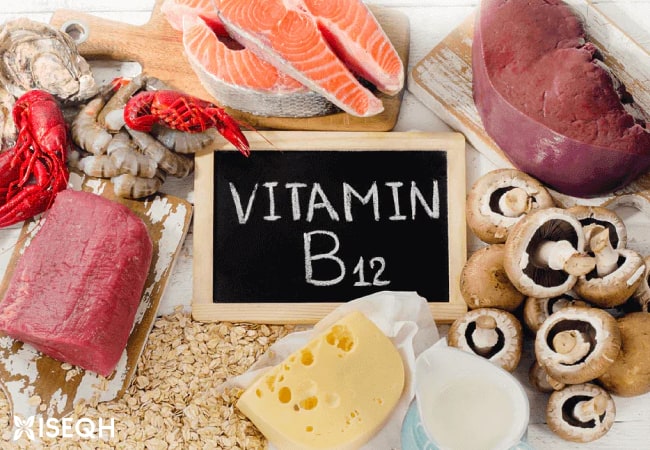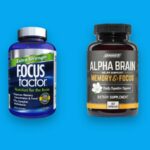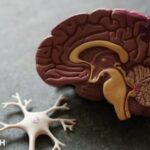
Table of Contents
Introduction
Vitamin B12, also known as cobalamin, is a water-soluble vitamin that is essential for optimal health. It plays a crucial role in various bodily functions, including DNA synthesis, red blood cell production, and nerve cell maintenance.
In this article, we will delve into the importance of Vitamin B12, sources, absorption, deficiency, and treatment.
Importance of Vitamin B12 in the body
Vitamin B12 is important for several bodily functions, including red blood cell production, nervous system health, and DNA synthesis. Let’s explore each of these functions in detail.
Red blood cell production
Vitamin B12 is necessary for the production of red blood cells in the body. It helps to maintain healthy levels of hemoglobin, which is the protein responsible for carrying oxygen in the blood. Without enough Vitamin B12, the body cannot produce enough healthy red blood cells, leading to anemia.
Nervous system health
Vitamin B12 plays a vital role in maintaining the health of the nervous system. It helps to produce the protective covering around nerve cells called myelin. Myelin helps to insulate nerve cells and improve the speed of nerve impulse transmission. A deficiency in Vitamin B12 can lead to nerve damage, which can cause tingling, numbness, and weakness in the extremities.
DNA synthesis
Vitamin B12 is essential for DNA synthesis, the process by which genetic material is created in the body. It helps to convert folate into its active form, which is necessary for DNA production. A deficiency in Vitamin B12 can cause errors in DNA synthesis, leading to an increased risk of cancer and birth defects.
Food sources of Vitamin B12
The body cannot produce Vitamin B12 on its own, which means we need to obtain it through our diet or supplements. Here are some food sources of Vitamin B12.
Animal sources
The most abundant sources of Vitamin B12 are animal-based foods, including meat, poultry, fish, and dairy products. Some of the best sources include beef liver, clams, salmon, tuna, and eggs.
Plant-based sources
Plant-based sources of Vitamin B12 are limited, and some of them may not be readily available or may require further processing to be active. Some sources of Vitamin B12 for vegans and vegetarians include fortified cereals, plant-based milk, and nutritional yeast.
Absorption of Vitamin B12 in the body
The absorption of Vitamin B12 is a complex process that involves several steps. First, the food-bound Vitamin B12 must be released from the food matrix by digestive enzymes in the stomach. Next, it binds to a protein called intrinsic factor, which is produced by the stomach lining. The Vitamin B12-intrinsic factor complex then travels to the small intestine, where it is absorbed into the bloodstream.
Factors that can affect the absorption of Vitamin B12 include age, gastrointestinal disorders, and the use of certain medications. Individuals with gastrointestinal disorders, such as Crohn’s disease or celiac disease.
Vitamin B12 deficiency
Vitamin B12 deficiency occurs when the body doesn’t have enough of this essential nutrient. It can cause various health problems, including anemia, nerve damage, and neurological disorders. Some of the common symptoms of Vitamin B12 deficiency include fatigue, weakness, pale skin, shortness of breath, tingling, and numbness in the extremities.
Causes
There are several causes of Vitamin B12 deficiency, including poor dietary intake, malabsorption, and certain medical conditions. Individuals who follow a vegan or vegetarian diet are at higher risk of developing Vitamin B12 deficiency as they rely on plant-based sources that are less bioavailable. Older adults are also at higher risk due to decreased stomach acid production, which impairs Vitamin B12 absorption.
Risk factors
Multiple factors pose a significant risk towards the development of Vitamin B12 deficiency, including the intricacy of age, gastrointestinal complications, and the consumption of particular medications. Those with a record of gastrointestinal surgery, Crohn’s disease, or celiac disease are more susceptible to Vitamin B12 deficiency. Drugs such as proton pump inhibitors, metformin, and antacids may hinder the absorption of Vitamin B12.
Diagnosis and treatment of Vitamin B12 deficiency
The detection of Vitamin B12 deficiency often involves a blood examination to assess the serum Vitamin B12 levels. If the results indicate a decrease in the levels, additional testing may be necessary to identify the root of the deficiency. The treatment for Vitamin B12 deficiency involves tackling the underlying cause and administering Vitamin B12 supplementation.
Individuals with a deficiency caused by inadequate consumption may benefit from increasing their intake of Vitamin B12-enriched foods or taking Vitamin B12 supplements. Those who suffer from malabsorption may need high-dosage Vitamin B12 supplementation or injections. In severe cases, hospitalization may become necessary.
Benefits of Vitamin B12 supplements
Supplementation with Vitamin B12 is not exclusive to those with a deficiency, but can also offer benefits to individuals with other health conditions. Scientific research has demonstrated that Vitamin B12 supplements can amplify energy levels, enhance mood, and boost cognitive function. Additionally, they may potentially lower the risk of heart disease by reducing levels of homocysteine, an amino acid known for its ability to damage blood vessels.
Side effects of excessive Vitamin B12 intake
While Vitamin B12 is generally considered safe, excessive intake can cause side effects. High doses of Vitamin B12 supplements or injections can cause acne, rosacea, and skin rashes. It can also interfere with certain medications, including antibiotics and chemotherapy drugs. Individuals with a history of kidney disease should avoid high-dose Vitamin B12 supplements as it can lead to kidney damage.
Conclusion
Vitamin B12 is an essential nutrient that plays a crucial role in several bodily functions, including DNA synthesis, red blood cell production, and nerve cell maintenance. It’s important to obtain adequate amounts of Vitamin B12 through diet or supplements to maintain optimal health. Individuals at risk of Vitamin B12 deficiency should speak with their healthcare provider about appropriate supplementation.
FAQs
Can Vitamin B12 supplements be harmful?
While Vitamin B12 supplements are generally considered safe, excessive intake can cause side effects, including acne, skin rashes, and interference with certain medications.
Can a vegan diet provide enough Vitamin B12?
Plant-based sources of Vitamin B12 are limited, and individuals following a vegan diet may require Vitamin B12 supplementation.
How is Vitamin B12 deficiency diagnosed?
Vitamin B12 deficiency is typically diagnosed through a blood test to measure serum Vitamin B12 levels.
What are the symptoms of Vitamin B12 deficiency?
Symptoms of Vitamin B12 deficiency include fatigue, weakness, pale skin, and shortness of breath.








